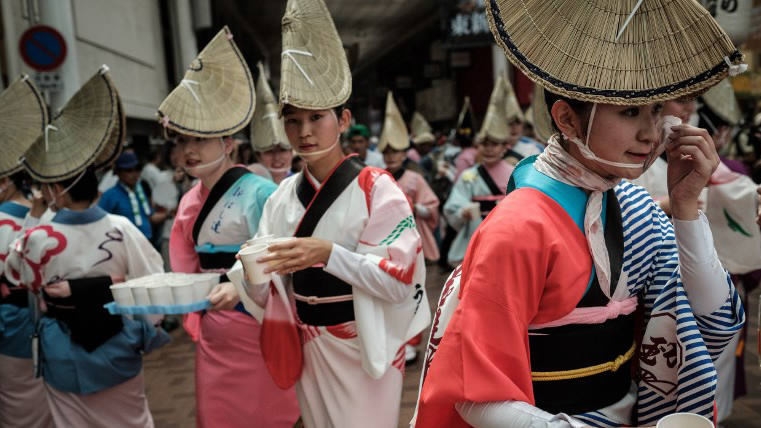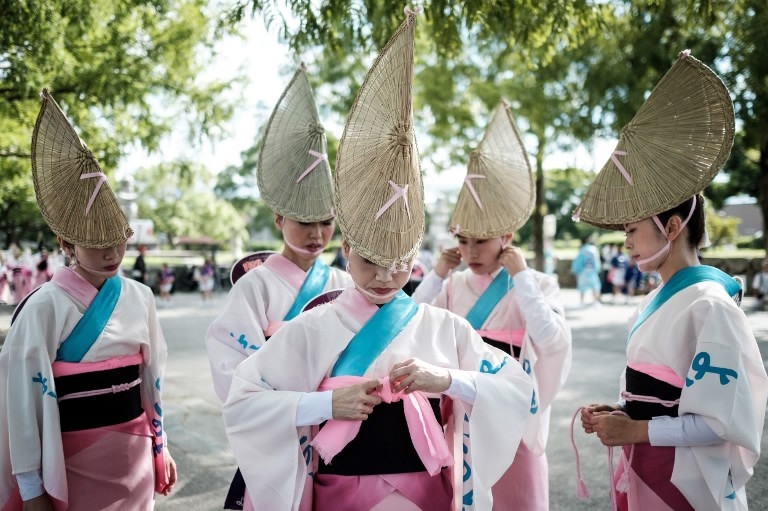
Culture
21:07, 12-Aug-2017
One million dance lovers gather at Japan's 'Awa' festival
CGTN

Over a million performers and spectators flock to a Japanese city this weekend for one of the country's largest dance festivals, after organizers stepped up efforts to accommodate foreign visitors.
The annual "Awa Odori", which originates from a Japanese Buddhist custom of honoring the spirits of ancestors, sees the otherwise sleepy city of Tokushima turn into a stage for four days.
Groups of dancers and musicians, known as "ren", parade through the streets to the sound of traditional music instruments such as lutes, drums, flutes and bells.

Performers dance in the street during the Awa Odori festival in Tokushima on August 12. /AFP Photo
Performers dance in the street during the Awa Odori festival in Tokushima on August 12. /AFP Photo
Sporting Japanese kimono costumes with hair bands or straw hats, they chant in chorus and dance in synchronized choreography. The number of participants, including performers, is expected to hit the same number as last year, when 1.2 million took part in the centuries-old carnival.
"You need practice when you do other Japanese traditional performing arts, but anyone can enjoy Awa Odori ... only by raising hands and taking steps to the rhythm," said 32-year-old dancer Masayuki Tatekawa.
Kenji Kitamura, an organizer added: "This is a dance festival welcoming everybody as they can watch, sing, dance". "This year we are putting more emphasis on foreign visitors as the number of tourists from other countries to Japan is increasing." He added that this year there would be English signs and temporary western-style toilets.

Performers prepare to dedicate their dance to a temple before the Awa Odori festival in Tokushima on August 12. /AFP Photo
Performers prepare to dedicate their dance to a temple before the Awa Odori festival in Tokushima on August 12. /AFP Photo
The country has launched a "Visit Japan" campaign ahead of the 2020 Tokyo Olympics and the government said last month that travelers to Japan from other countries had jumped 17.4 percent to a record 13.8 million for the first half of 2017.
Source(s): AFP

SITEMAP
Copyright © 2018 CGTN. Beijing ICP prepared NO.16065310-3
Copyright © 2018 CGTN. Beijing ICP prepared NO.16065310-3